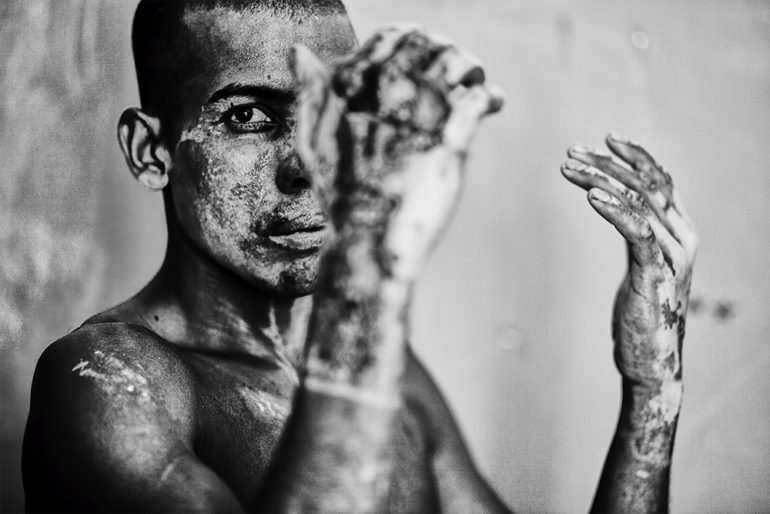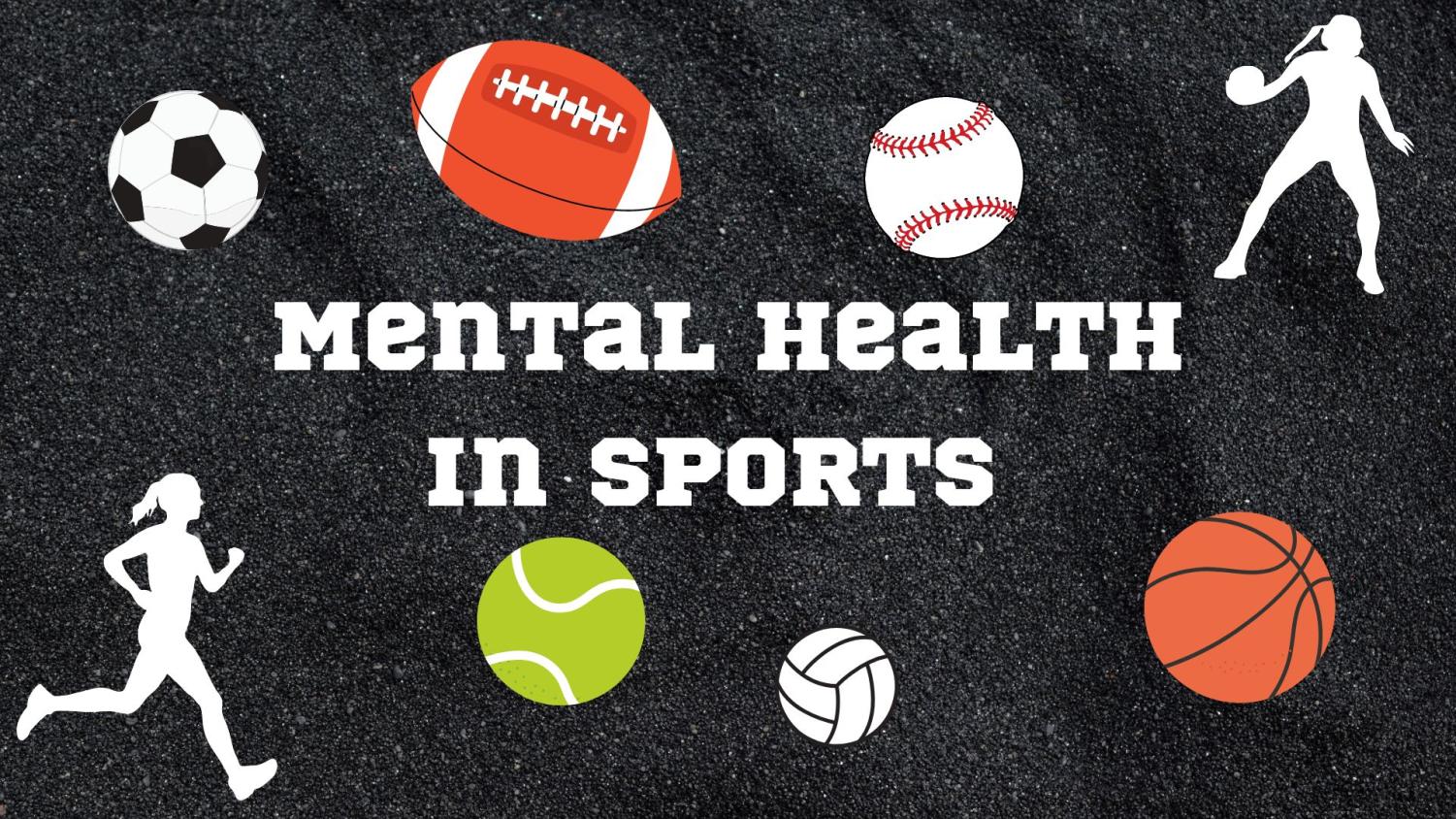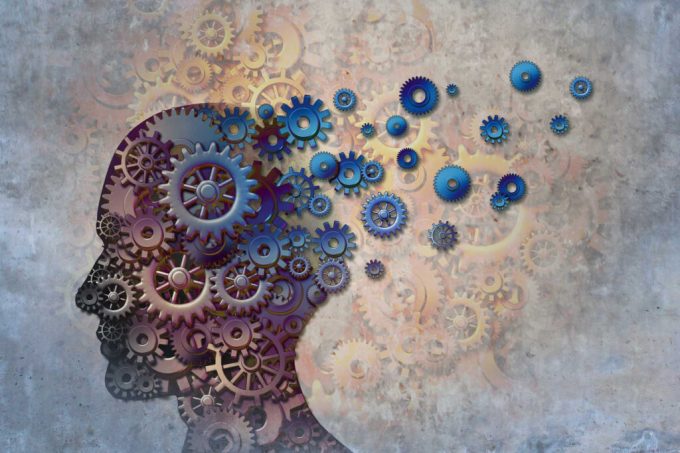What is emotional and psychological trauma?
Emotional and psychological trauma is the result of extraordinarily stressful events that shatter your sense of security, making you feel helpless in a dangerous world. Psychological trauma can leave you struggling with upsetting emotions, memories, and anxiety that won’t go away. It can also leave you feeling numb, disconnected, and unable to trust other people.
Traumatic experiences often involve a threat to life or safety, but any situation that leaves you feeling overwhelmed and isolated can result in trauma, even if it doesn’t involve physical harm. It’s not the objective circumstances that determine whether an event is traumatic, but your subjective emotional experience of the event. The more frightened and helpless you feel, the more likely you are to be traumatized.

Emotional and psychological trauma can be caused by:
- One-time events, such as an accident, injury, or a violent attack, especially if it was unexpected or happened in childhood.
- Ongoing, relentless stress, such as living in a crime-ridden neighborhood, battling a life-threatening illness or experiencing traumatic events that occur repeatedly, such as bullying, domestic violence, or childhood neglect.
- Commonly overlooked causes, such as surgery (especially in the first 3 years of life), the sudden death of someone close, the breakup of a significant relationship, or a humiliating or deeply disappointing experience, especially if someone was deliberately cruel.
Coping with the trauma of a natural or manmade disaster can present unique challenges—even if you weren’t directly involved in the event. In fact, while it’s highly unlikely any of us will ever be the direct victims of a terrorist attack, plane crash, or mass shooting, for example, we’re all regularly bombarded by horrific images on social media and news sources of those people who have been. Viewing these images over and over can overwhelm your nervous system and create traumatic stress.

How do people respond to traumatic events?
A traumatic event is a shocking, scary, or dangerous experience that can affect someone emotionally and physically. Traumatic events can include experiences such as natural disasters (such as hurricanes, earthquakes, and floods), acts of violence (such as assault, abuse, terror attacks, and mass shootings), and car crashes or other accidents.
It is natural to feel afraid during and after a traumatic situation. Fear is a part of the body’s “fight-or-flight” response, which helps us avoid or respond to potential danger. People may experience a range of reactions after trauma, including:
- Feeling anxious, sad, or angry
- Trouble concentrating and sleeping
- Continually thinking about what happened
Most people will recover from these symptoms, and their reactions will lessen over time. Those who continue to experience symptoms may be diagnosed with post-traumatic stress disorder (PTSD)
It is important to seek professional help if symptoms do not improve over time or begin to interfere with daily life. Some signs that a person may need help include:
- Worrying a lot or feeling very anxious, sad, or fearful
- Crying often
- Having trouble thinking clearly
- Having frightening thoughts or flashbacks, reliving the experience
- Feeling angry, resentful, or irritable
- Having nightmares or difficulty sleeping
- Avoiding places or people that bring back disturbing memories and responses
- Becoming isolated from family and friends
Physical responses to trauma may also mean that a person needs help. Physical symptoms may include:
- Having headaches
- Having stomach pain and digestive issues
- Having difficulty falling asleep or staying asleep
- Having a racing heart and sweating
- Being very jumpy and easily startled
People who have a personal or family history of mental illness or substance use, who have had previous exposure to traumatic experiences, who face ongoing stress or trauma (such as abuse), or who lack support from friends and family may be more likely to develop more severe symptoms and need additional help.
People who experience traumatic events also may experience panic disorder, depression, substance use, or suicidal thoughts. Treatment for these conditions can help with recovery after trauma.

Common reactions and responses to trauma
- Intense or unpredictable feelings. You may be anxious, nervous, overwhelmed, or grief-stricken. You may also feel more irritable or moody than usual.
- Changes to thoughts and behavior patterns. You might have repeated and vivid memories of the event. These memories may occur for no apparent reason and may lead to physical reactions such as rapid heartbeat or sweating. It may be difficult to concentrate or make decisions. Sleep and eating patterns also can be disrupted—some people may overeat and oversleep, while others experience a loss of sleep and loss of appetite.
- Sensitivity to environmental factors. Sirens, loud noises, or other environmental sensations may stimulate memories of the disaster creating heightened anxiety. These “triggers” may be accompanied by fears that the stressful event will be repeated.
- Strained interpersonal relationships. Increased conflict, such as more frequent disagreements with family members and coworkers, can occur. You might also become withdrawn, isolated, or disengaged from your usual social activities.
- Stress-related physical symptoms. Headaches, nausea, and chest pain may occur and could require medical attention. Preexisting medical conditions could be affected by disaster-related stress.
What can I do to cope with trauma?
Trauma can cause strong feelings and difficult experiences. It can take time and support to be able to cope. But there are things you can try that might help with how you’re feeling.
Reach Out for Support
Step one is to ignore the impulse to wrap yourself in a cocoon and, instead, surround yourself with support so you can begin to process how you feel about what happened. Start with those closest to you, such as a friend, parent or guardian, teacher, mentor, or coach. It’s OK if you don’t have anyone you feel comfortable talking to about this. Make an appointment to see a counselor or therapist. Whatever you do, don’t suffer in silence
Learn New Coping Strategies
There are two levels to coping with trauma: managing it in the moment and working toward long-term healing, which means expanding your ability to hold your trauma as you move through everyday life. Both are important and include easy-to-learn skills that can make a big difference with time and practice.
Try to look after your basic needs
After trauma, we might forget to eat, sleep and look after ourselves. These things might feel very difficult. But resting and hydrating ourselves gives our mind the energy it needs to process the trauma. And can help us think what we need to do next.
If sleeping is difficult, giving yourself some time to sit or lie down can help. Sleep when you need to, even if this isn’t when you’d normally sleep.
If you’re finding it difficult to eat, try to snack throughout the day. Or change your meal times to when you feel more hungry. Bland foods might feel easier to eat, rather than food with lots of flavour.
Feel your emotions
You might feel like you need to be strong. Or that showing certain types of emotions is a sign of weakness. You also might find the way you feel is not what others expect.
It’s ok to cry, be angry, or laugh. Try and speak with someone you trust so you can express how you’re really feeling.
Get to know your triggers
Some experiences, situations or people might trigger reactions like flashbacks, panic attacks or dissociation. These can include reminders of past trauma, such as smells, sounds, words, places, or books and films.
You might find things difficult on significant dates, such as the anniversary of a traumatic experience. Or some seasons or times of year might be hard, such as Christmas.
You might not always be able to avoid your triggers. But understanding them can help you be prepared and help manage them when they do happen.
Recording your moods in a diary could help you spot patterns. Or it might help you to notice early signs of your feelings changing.

Coping With Trauma in the Moment
When something triggers a memory of trauma, it can hit you hard with panic, anxiety, shortness of breath, tightness in your chest, and sweating. Grounding exercises can help you learn how to ride the wave, calm yourself down, and move forward.
- Take deep breaths. Research shows just a few minutes of focusing on your breathing can help relax your brain and make it easier for you to cope with stress
- Focus on your five senses. One by one, name what you can touch, smell, taste, hear, and see. Simple distractions like this can help root you in the present and help you stop spiraling. Strong flavors, such as sour candies, can be especially helpful to pull you out of panic.
- Step away. As much as possible, try to create distance between yourself and the person, place, or thing that triggered you. Create pockets of safety for yourself, whether it’s in a place like the library, with certain people, or alone with your favorite shows or playlists.
- Lean on loved ones. When you’re really struggling, text, call, and meet up with people who make you feel safe and supported. Having a listener can help you process difficult feelings and memories.
Healing From Trauma in the Long Term
Even if you’re doing your best to cope with trauma in the moment, plenty of us need more support—sometimes from someone who isn’t so close to us—to truly begin to heal. If you’re continuing to feel broken, anxious, or depressed, don’t hesitate to reach out for professional help and add more self-care into your life.
- Seek therapy. Mental health professionals trained to treat trauma can help you manage symptoms, learn coping skills, and restore your sense of self-love and safety in the world.
- Get creative. Just getting up and moving your body to music can help shift you out of a challenging place. Use journaling or other creative outlets, such as painting or songwriting, to express your feelings about the traumatic event.
- Practice mindfulness. Try guided meditation or yoga to help ease tension and pain and feel more comfortable in your own skin.

How To Deal with difficult Situations And feelings after trauma
The effects of trauma can last a long time. They might go away and come back. Or they can show up for the first time, long after the trauma has happened.
We might experience overwhelming, distressing feelings related to the trauma at random times. This can happen even if we’re feeling happy and well overall.
These are some tips for coping with difficult feelings in the moment.
Flashbacks
- Tell yourself that you’re safe and the trauma isn’t happening now.
- Touch or hold an object that reminds you of the present.
- Describe your surroundings out loud, count your footsteps while walking, or try to remember the lyrics to a song to distract yourself.
- Count objects of a certain type or colour.
Panic attacks
- Breathe slowly in and out while counting to five. There are videos online and apps you can use to help pace your breathing.
- Stamp on the spot.
- Taste mint-flavoured sweets or gum, or something sour.
- Touch or cuddle something soft.
- Wrap a blanket around you. A weighted blanket can help, if you find a sense of pressure comforting.
Dissociation or feeling spaced out
- Breathe slowly while counting.
- Hold an ice cube or splash cold water on your face.
- Touch something with an interesting texture or sniff something with a strong smell.
- Imagine a place that feels safe to you.
Having nightmares
- Remind yourself that you’re safe.
- Do something calming before you try going back to sleep. This could be out of bed, if it helps you feel calmer.
- Have an object next to your bed that helps ground you or makes you feel calm.
- Try to avoid drinking, eating or smoking things that keep you awake and alert.
- Try a relaxation exercise.
Feeling sad, depressed or lonely
- Write down your feelings or keep a journal.
- Do something creative.
- Talk to someone you trust. Or try peer support, to share how you feel with people who have similar experiences.
- Spend some time in nature. This could be going outside, or just opening a window for some fresh air.
Feeling like you want to self-harm
- Rub ice over where you want to hurt yourself.
- Massage your hands or the place you want to hurt yourself.
- Stick sellotape or a plaster on your skin and peel it off.
- Take a cold bath or shower.















Leave a comment